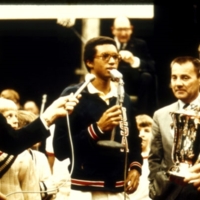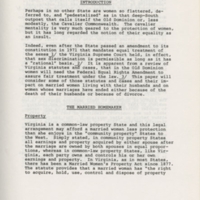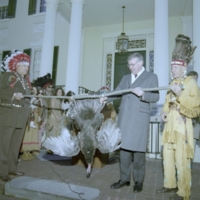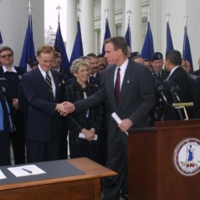Contemporary United States
1968 - Present
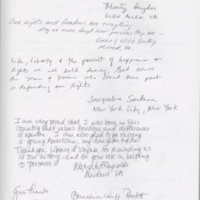
This era is, in large part, a study of the United States as a global power – politically, economically, and militarily. The detente with communist China under President Richard Nixon began a shift from the “Domino Theory” of foreight policy in Asia. The collapse of the Soviet Union and the end of the Cold War changed how the United States interacted with Europe. At the same time, interventions increased in our own hemisphere and in the Middle East. Terrorism also became a driving force behind foreign policy.
Socially, this time period saw for the first time immigration primarily from Asia and Central America. A new wave of reform movements promoted environmental, feminist, and civil rights agendas. There was also a resurgence of religious evangelicalism. Technological advances once again redefined not only the economic landscape of America, but also the lives of everyday citizens.
Learn more in the National U.S. History Content Standards.
Recently added items
Arthur Ashe Accepting Trophy at Fidelity Bankers Invitational Tennis Tournament, Photograph, 1970
Arthur Robert Ashe was a Black tennis player and human rights activist who became one of the greatest tennis players in American history. To date he is the first and only Black man to win the singles title in three of tennis' Grand Slam events, the…
A Report on the Legal Status of Homemakers in Virginia, 1977
In January 1975, the National Commission on the Observance of International Women's Year was a presidential commission established by President Gerald Ford. The purpose of the commission was to work in conjunction with the International Women’s Year…
Virginia Indian Tribes Pay Tribute Taxes to Governor Baliles, Photograph, 1989
The annual payment of tribute by Virginia's Indians has been a long-standing practice that still occurs today. In 1646, Necotowance, "the King of the Indians" as the English referred to him, signed a treaty to end the third Anglo-Indian War. Annual…
Bill Signing for Emergency Preparedness, Photograph, 2002
Governor Mark Warner signed the Emergency Preparedness Executive Order on Jan. 31, 2002. The order launched the Secure Virginia Initiative, established the Secure Virginia Panel, directed state agencies to prepare or update emergency response plans,…

